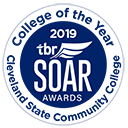Credit Representative
Credit Authorizers, Checkers, and Clerks
43-4041.00
Median wages
$33,500
Authorize credit charges against customers' accounts. Investigate history and credit standing of individuals or business establishments applying for credit. May interview applicants to obtain personal and financial data; determine credit worthiness; process applications; and notify customers of acceptance or rejection of credit.
- Keep records of customers' charges and payments.

- Evaluate customers' computerized credit records and payment histories to decide whether to approve new credit, based on predetermined standards.

- File sales slips in customers' ledgers for billing purposes.

- Receive charge slips or credit applications by mail, or receive information from salespeople or merchants by telephone.

- Mail charge statements to customers.

- Prepare credit cards or charge account plates.
- Accounting software — Financial accounting software

- Data base user interface and query software — Data entry software


- Electronic mail software — Microsoft Outlook


- Internet browser software — Microsoft Internet Explorer

- Office suite software — Microsoft Office

- Presentation software — Microsoft PowerPoint


- Spreadsheet software — Microsoft Excel


- Word processing software — Microsoft Word
- Active Listening — Giving full attention to what other people are saying, taking time to understand the points being made, asking questions as appropriate, and not interrupting at inappropriate times.

- Speaking — Talking to others to convey information effectively.

- Reading Comprehension — Understanding written sentences and paragraphs in work related documents.

- Critical Thinking — Using logic and reasoning to identify the strengths and weaknesses of alternative solutions, conclusions or approaches to problems.

- Judgment and Decision Making — Considering the relative costs and benefits of potential actions to choose the most appropriate one.

- Writing — Communicating effectively in writing as appropriate for the needs of the audience.

- Social Perceptiveness — Being aware of others' reactions and understanding why they react as they do.

- Time Management — Managing one's own time and the time of others.

- Complex Problem Solving — Identifying complex problems and reviewing related information to develop and evaluate options and implement solutions.

- Active Learning — Understanding the implications of new information for both current and future problem-solving and decision-making.

- Coordination — Adjusting actions in relation to others' actions.

- Negotiation — Bringing others together and trying to reconcile differences.

- Monitoring — Monitoring/Assessing performance of yourself, other individuals, or organizations to make improvements or take corrective action.










